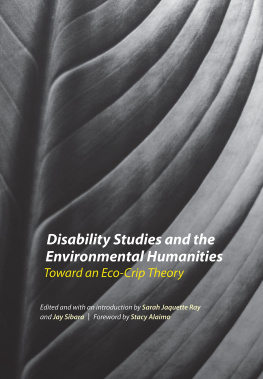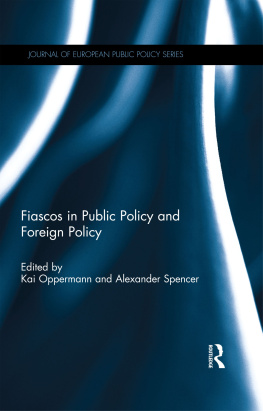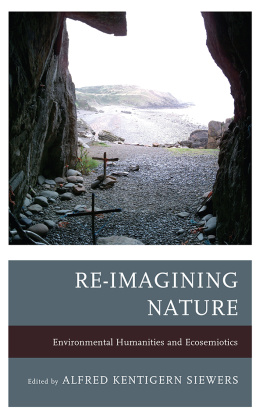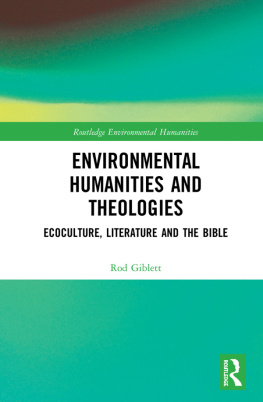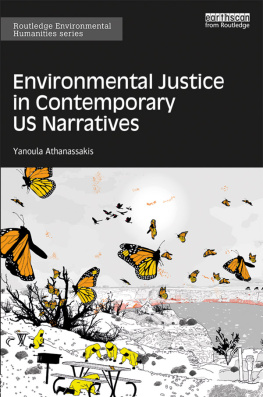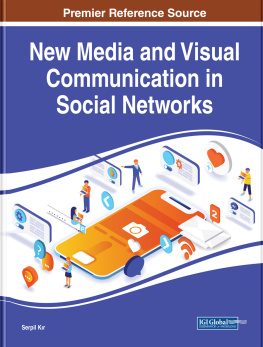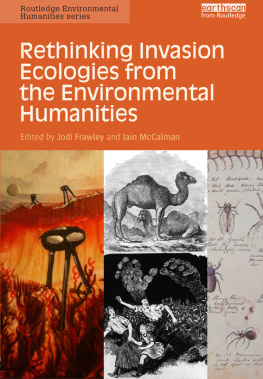Oppermann Serpil - Environmental Humanities
Here you can read online Oppermann Serpil - Environmental Humanities full text of the book (entire story) in english for free. Download pdf and epub, get meaning, cover and reviews about this ebook. year: 2017, publisher: National Book Network International, genre: Romance novel. Description of the work, (preface) as well as reviews are available. Best literature library LitArk.com created for fans of good reading and offers a wide selection of genres:
Romance novel
Science fiction
Adventure
Detective
Science
History
Home and family
Prose
Art
Politics
Computer
Non-fiction
Religion
Business
Children
Humor
Choose a favorite category and find really read worthwhile books. Enjoy immersion in the world of imagination, feel the emotions of the characters or learn something new for yourself, make an fascinating discovery.

- Book:Environmental Humanities
- Author:
- Publisher:National Book Network International
- Genre:
- Year:2017
- Rating:4 / 5
- Favourites:Add to favourites
- Your mark:
- 80
- 1
- 2
- 3
- 4
- 5
Environmental Humanities: summary, description and annotation
We offer to read an annotation, description, summary or preface (depends on what the author of the book "Environmental Humanities" wrote himself). If you haven't found the necessary information about the book — write in the comments, we will try to find it.
Environmental Humanities — read online for free the complete book (whole text) full work
Below is the text of the book, divided by pages. System saving the place of the last page read, allows you to conveniently read the book "Environmental Humanities" online for free, without having to search again every time where you left off. Put a bookmark, and you can go to the page where you finished reading at any time.
Font size:
Interval:
Bookmark:
Environmental Humanities
ROWMAN AND LITTLEFIELD INTERNATIONAL INTERSECTIONS
The Rowman and Littlefield International Intersections series presents an overview of the latest and emerging trends in some of the most dynamic areas of research in the Humanities and Social Sciences today. The texts explore emerging subdisciplines or topics or established subdisciplines that are evolving as interdisciplinary fields.
TITLES IN THE SERIES
Critical Kinship Studies edited by Charlotte Krolkke, Lene Myong, Stine Willum Adrian, and Tine Tjrnhj-Thomsen
Environmental Humanities edited by Serpil Oppermann and Serenella Iovino
Environmental Humanities
Voices from the Anthropocene
Edited by
Serpil Oppermann and Serenella Iovino

Published by Rowman & Littlefield International Ltd
Unit A, Whitacre Mews, 26-34 Stannary Street, London SE11 4AB
www.rowmaninternational.com
Rowman & Littlefield International Ltd.is an affiliate of Rowman & Littlefield
4501 Forbes Boulevard, Suite 200, Lanham, Maryland 20706, USA
With additional offices in Boulder, New York, Toronto (Canada), and Plymouth (UK)
www.rowman.com
Copyright 2017 by Serpil Oppermann, Serenella Iovino and Contributors
All rights reserved. No part of this book may be reproduced in any form or by any electronic or mechanical means, including information storage and retrieval systems, without written permission from the publisher, except by a reviewer who may quote passages in a review.
British Library Cataloguing in Publication Data
A catalogue record for this book is available from the British Library
ISBN: HB 978-178-348-938-1
PB 978-178-348-939-8
Library of Congress Cataloguing in Publication Data is Available
ISBN 978-1-78348-938-1 (cloth: alk. paper)
ISBN 978-1-78348-939-8 (pbk: alk. paper)
ISBN 978-1-78348-940-4 (electronic)
 The paper used in this publication meets the minimum requirements of American National Standard for Information SciencesPermanence of Paper for Printed Library Materials, ANSI/NISO Z39.48-1992.
The paper used in this publication meets the minimum requirements of American National Standard for Information SciencesPermanence of Paper for Printed Library Materials, ANSI/NISO Z39.48-1992.
Printed in the United States of America
Table of Contents
Serpil Oppermann and Serenella Iovino
Jeffrey Jerome Cohen
Marco Armiero
Hubert Zapf
Greta Gaard
Scott Slovic
Jan Zalasiewicz
J. Baird Callicott
Joni Adamson
Filippo Bertoni
Lowell Duckert
Stefan Helmreich
Matthew Calarco
Thom van Dooren and Deborah Bird Rose
Kate Rigby
Wendy Wheeler
Rob Nixon
Bronislaw Szerszynski
Juan Carlos Galeano
Rosi Braidotti and Cosetta Veronese
Transdisciplinary and multiperspectival, the Environmental Humanities are, by definition, a research field based on teamwork. Faithful to this premise, this book also comes from the joint efforts of people and institutions whose support we are happy to recognise.
Sarah Campbell at Rowman & Littlefield International deserves heartfelt thanks for asking us to assemble this volume. Her invitation has given us another opportunity to work with so many important colleagues who share our scepticism about the Great Divide between the sciences and the humanities, and whose work stimulates us to cross disciplinary boundaries and envision new productive forms of dialogue. To all of them, as our authors on the pages of this book, goes therefore a deep gratitude: because their voices and ideas are the real strength of this project. In particular, we would like to thank Baird Callicott for his expert and patient feedback on our Introduction. The editorial team at Rowman & Littlefield International (Sinead Murphy, Isobel Cowper-Coles) added to our efforts its scrupulous and resourceful work on texts, illustrations, and captions.
For these many years of ecocultural debates, we owe thankfulness to the international and intersectional community of ASLE and EASLCE: projects like this book, among all the others we have pursued over the last decade, would be unthinkable apart from this collective atmosphere of sharing, thinking, and caring.
In addition, Serenella Iovino would like to thank the Alexander-von-Humboldt Foundation for yielding her a research grant at the Rachel Carson Center for Environment and Society of the Ludwig-Maximilians Universitt, Munich. There, thanks to the welcoming, inclusive collegial atmosphere created by Christof Mauch and coordinated by Rob Emmett, she found an amazingly inspirational milieu, where cutting-edge cross-disciplinary inquiry goes hand in hand with Bavarias legendary Lebensgenuss. Some of the contributions in this volume come from presentations and discussions held during the Thursday meetings in the Leopoldstrasse. Sincere gratitude also goes to her colleagues at the Turin International Group of Environmental Humanities Research, especially Daniela Fargione, Laura Bonato, and Alberto Baracco, and to the students and colleagues at the Elitestudienkolleg Ethik der Textkulturen at the University of Augsburg, Germany, masterfully led by Hubert Zapf.
To our families, an inextinguishable debt of gratitude that words could never convey.
AnkaraTurin, May 2016
J. Baird Callicotts chapter previously appeared with the title A NeoPreSocratic Manifesto in Environmental Humanities 2 (2013): 169186.
Stefan Helmreichs chapter is reproduced by permission of the American Anthropological Association from American Anthropologist 113.1 (March 2011): 132144. Not for sale or further reproduction.
Thom van Dooren and Deborah Bird Roses chapter was previously published in the special issue of Environmental Humanities, Multispecies Studies. Ed. Thom van Dooren, Ursula Mnster, Eben Kirksey, Deborah Bird Rose, Matthew Chrulew, Anna Tsing. 8.1 (Spring 2016).
Rob Nixons chapter appeared in the special issue of Perspectives, The Edges of Environmental History: Honouring Jane Carruthers. Ed. Christof Mauch and Libby Robin. 1 (Spring 2014): 101109.
Rosi Braidotti and Cosetta Veroneses Can the Humanities Become Posthuman? A Conversation appeared in of the special double issue of Relations: Beyond Anthropocentrism, Past the Human: Narrative Ontologies and Ontological Stories. Ed. Serenella Iovino, Roberto Marchesini, and Eleonora Adorni. June 2016: 95102.
All these texts are reproduced in revised or expanded form with the kind permission of the previous publishers or of the authors as copyright owners.
Debate continues about whether the Anthropocene should be recognised as our current geological era and, if so, when that era began. But, in any case, what are the cultural, ethical, and personal implications of the concept? Is it much of a paradigm-changer?
The challenges it brings are paradoxical. Atmospheric chemist Paul J. Crutzen and biologist Eugene F. Stoermer, proposing the idea in 2000, declared that their purpose was to emphasize the central role of mankind in geology and ecology (17). In the Holocene, the era that officially we still inhabit, mankinds activities had gradually become a significant geological morphological force (17). That force is ever more pervasive, due to the global nature of the climate system, the globalization of industrial capitalism, the continuing increase in the overall human population, and the accumulation of waste-matter such as CO2 in the atmosphere and plastic in oceans and landfill sites. The geologist Jan Zalasiewicz, in his essay in this collection, uses the example of discarded plastic to illustrate several facets of the change made by human beings:
Font size:
Interval:
Bookmark:
Similar books «Environmental Humanities»
Look at similar books to Environmental Humanities. We have selected literature similar in name and meaning in the hope of providing readers with more options to find new, interesting, not yet read works.
Discussion, reviews of the book Environmental Humanities and just readers' own opinions. Leave your comments, write what you think about the work, its meaning or the main characters. Specify what exactly you liked and what you didn't like, and why you think so.

